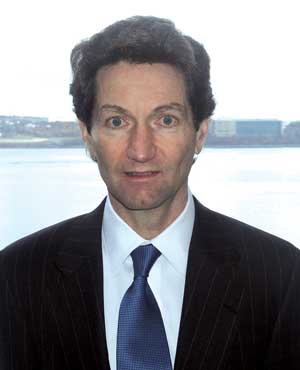The new rules and by-laws governing the paralegal profession won''t be coming into effect until May 1, but the Law Society of Upper Canada''s process of integrating this new group of legal practitioners with its existing responsibilities is already fully underway on many levels.

The law society is expecting to issue the first paralegal licences in early 2008. While the law society says it won't have the authority to regulate paralegals until then, it will "continue to receive, investigate, and act on complaints that a paralegal is engaged in the unauthorized practice of law - providing legal services that only a lawyer may provide." Paralegals are also required to abide by the rules of professional conduct and the bylaws until the licences are issued.
Starting in May, existing paralegals who have three years of experience within a five-year period will have six months to apply for a "grandparenting" provision, after which they will have to write a licencing exam. There may also be transitional provisions for paralegals with less than three years experience on a case-by-case basis. Otherwise, paralegals will be licensed upon completion of an approved program and after passing the licensing exam.
Gavin MacKenzie, treasurer of the Law Society of Upper Canada told Law Times that, "We have rules of professional conduct, of course, for lawyers, we have a large investigative staff and prosecutorial staff, we have standards for lawyers, we have mandatory insurance for lawyers, so I expect we're going to be adapting a lot of what we already have for paralegals, because we have that springboard. But having said that, I think that we will also be regulating paralegals separately from lawyers.
"We have the systems already in place for lawyers and I think we will be able to learn from those systems, but that isn't to say necessarily that there will ultimately be full integration between our systems for regulating lawyers and our systems for regulating paralegals because there are some unique considerations as far as paralegals are concerned as well," he adds.
"I expect, in all likelihood, that the investigations and complaints will be handled in very similar ways and I expect we'll probably be making use to some extent at least of our existing staff and systems for that purpose," says MacKenzie.
He adds, however, that the law society would likely eventually require additional resources, both financial and staff, for the paralegal regulation regime.
"The expectation is that it will be funded at least primarily in due course by paralegals themselves, just as the regulation of lawyers has always been funded by lawyers themselves."
He says the law society expects it will probably require some additional staff as a result of the new members, "just because the number of members of the law society will be increasing, just as the number of lawyers we've been regulating has increased over the years and that's required us to increase the number of staff."
He notes that the increased staff's salaries will be covered by the new fees coming in from new paralegal members of the law society.
The 13-member paralegal standing committee is also already in place and had its first official meeting last week after an initial orientation meeting last month.
Paralegal Paul Dray, chairman of the paralegal standing committee, says some of the issues the committee will be looking into initially include the grandparenting process, the rules of professional conduct, exemptions, college accreditation, and how the application process is going to work. It will also look at the insurance issue and be asking for submissions from a number of providers.
He says the committee is working with everybody at the law society, from communications to budget and finance.
MacKenzie says the LSUC has also established a paralegal project team at the staff level, which is being led by law society CEO Malcolm Heins.
"The work that the paralegal standing committee is going to be doing and which ultimately will go before Convocation for approval, will impinge on the roles of many different departments and functions at the law society, including our professional development and competence, for example, and our professional regulation groups, which are two of the largest staff groups at the law society," says MacKenzie.
"But we'll simultaneously have the paralegal standing committee working on devising recommendations for Convocation's approval at the policy level, as well as having the paralegal project team . . . developing the systems for implementing paralegal regulation at the staff level."
MacKenzie says preparations at the law society for the regulation of new paralegal members in anticipation of Bill 14 passing have been going on for most of the year, from the information technology, standards, and professional regulation areas.
"It certainly didn't come as a surprise to us that Bill 14 came into law this fall. We were laying the groundwork for it at the staff level for some considerable period of time before that," he says.

 The law society is expecting to issue the first paralegal licences in early 2008. While the law society says it won't have the authority to regulate paralegals until then, it will "continue to receive, investigate, and act on complaints that a paralegal is engaged in the unauthorized practice of law - providing legal services that only a lawyer may provide." Paralegals are also required to abide by the rules of professional conduct and the bylaws until the licences are issued.
The law society is expecting to issue the first paralegal licences in early 2008. While the law society says it won't have the authority to regulate paralegals until then, it will "continue to receive, investigate, and act on complaints that a paralegal is engaged in the unauthorized practice of law - providing legal services that only a lawyer may provide." Paralegals are also required to abide by the rules of professional conduct and the bylaws until the licences are issued.